- Home
- Nora Roberts
Tribute Page 10
Tribute Read online
Page 10
“Does he still live here? The boy—well, not a boy now—the one who survived the wreck?”
“He died last year. Or the year before. I’m not sure.”
“I didn’t hear about it.”
“He lived at home his whole life. His parents looked after him. Rough.”
“Yes. His father blamed Janet. Blamed her for bringing her Hollywood immorality here, for letting her son run wild, for buying him the fast car.”
“There were two other boys in that car. Nobody forced them into it,” Ford pointed out. “Nobody poured beer forcibly down their throats or pumped pot into their systems. They were young and stupid, all three of them. And they paid a terrible price for it.”
“And she paid them. According to my mother—and her bitterness over it tells me it’s true—Janet paid each of the families of those boys a considerable sum of money. Undisclosed amount, even to my mother. And again, according to the gospel of Dilly, Janet only kept the farm as a kind of monument to Johnnie, and tied it up in trusts for decades after her own death for the same reason. But I don’t believe that.”
“What do you believe?”
“I believe Janet kept it because she was happy here. Because she could hear her own thoughts here, even when those thoughts were dark and dreadful.” She sighed, sat back. “Give me another glass of wine, will you, Ford? That’ll make three, which is my absolute personal high-end limit.”
“What happens after three?”
“I haven’t gone over three in years, but if history holds, I go from relaxed, perhaps mildly and pleasantly buzzed, to drunk enough to have yet one or maybe two more. Then I’d be very drunk, jump you, and wake up tomorrow with a hangover and only blurred memories of our encounter.”
“In that case, you’re cut off after this.” He poured the wine. “When we encounter, your memory’s going to be crystal.”
“I haven’t decided on that yet, you know.”
“That’s okay, I have.” He propped his chin on his fist, stared at her. “I can’t get myself out of your eyes, Cilla. They keep pulling me in.”
“Janet Hardy’s eyes.”
“No. Cilla McGowan’s eyes.”
She smiled, sipped her last glass of wine. “I was going to make up an excuse—or not even bother to make one up—about not coming tonight.”
“Is that so?”
“That is so. Because you got bossy about my living arrangements.”
“Defining ‘bossy’ as ‘sensible.’ Why did you come?”
“Buying the toilets put me in a really good mood. Seriously,” she said when he choked out a laugh. “I’ve found my thing, Ford. After a long time looking.”
“You found your thing in toilets.”
It was her turn to laugh. “I found my thing in taking something broken down or neglected, or just a little tired, and making it shine again. Making it better. And doing that’s made me better. So because I was in a good mood, I walked across the road. I’m really glad I did.”
“So am I.”
SHE DIDN’T SEE him or Spock when she let herself in his home gym the next morning. Cilla plugged in her iPod and got down to business. She gave herself a solid hour, and at some point during it the dog strolled out into the backyard and lifted his leg a number of times. But there was still no sign or sound from Ford when she let herself out again, with one wistful glance at his hot tub.
No time for jets and indulgence, she told herself. But as Spock raced over, so obviously thrilled to see her, she spent a good ten minutes rubbing him while he gurgled and grunted in what seemed to be some form of communication. The workout, the silly dog, just the day itself put her in a fine mood as she jogged back across the road. She showered off the workout sweat, downed coffee and a blueberry yogurt. By the time she strapped on her tool belt, her crews and subs began to arrive.
It took time, every morning, but Cilla was happy to spend it. Talking, evaluating, brainstorming away problems.
“I’m going to expand the bathroom, Buddy,” she told him, and, as she expected, he let out a windy sigh.
“The one I’m using now, not the one you’ve roughed in.”
“That’s something anyway.”
“I’ve already talked to Matt,” she said. “Come on up, and I’ll show you what we’re going to do.”
He hemmed and he hawed, but that was expected, too. In fact, she’d come to look forward to it. “Now that we’re putting my office upstairs instead of in this bedroom, I’m going to use this space to make it a master suite. We’ll be taking out this wall,” she began.
He listened, he scratched, he shook his head. “Gonna cost you.”
“Yes, I know. I’ll draw it up in more detail later, but for now, here’s the idea.” She opened her notebook to the sketch she’d drawn with Matt. “We’ll keep the old claw-foot tub, have it refurbished and set here. Floor pipes and drains. Double sinks here, and I’m thinking undermount.”
“Guess you’ll be putting a slab of granite or whatnot.”
“No, zinc.”
“Say, what?”
“Zinc countertop. And over here, I’m putting in a steam shower. Yes,” she said before he could speak. “Hollywood ideas. Glass block here, to form the water closet. In the end, it’s going to reflect and respect the architecture, pay homage to retro, and, Buddy, it will rock.”
“You’re the boss.”
She grinned. “Damn straight.”
The boss moved outside, to build her rail and pickets in the April sunshine.
When her father pulled in, Cilla had her sides run, and had worked up a fresh sweat.
“Doesn’t that look nice,” he commented.
“It’s coming along.”
He nodded toward the house, and the cacophony of construction noise. “Sounds like more’s coming along inside.”
“First-stage demo’s done. I’ve changed some things, so we’ll have more demo on the second floor later. But the inspector’s coming tomorrow.” She lifted her hand, crossed her fingers. “To approve the rough plumbing and electric. Then we’ll boogie.”
“It’s the talk of the town.”
“I imagine so.” She gestured toward the road. “Traffic’s increased. People slow down, even stop, to look. I had a call from the local paper for an interview. I don’t want pictures yet. Most people can’t see what it’s going to be while it’s at this stage, so I gave the reporter a quick hit over the phone.”
“When’s it going to run?”
“Sunday. Lifestyle. Janet Hardy still has the switch.” Cilla pushed back her cap to swipe the back of her hand over her forehead. “You knew her, Dad. Would she approve?”
“I think she loved this place. I think she’d be pleased you love it, too. And that you’re putting your mark on it. Cilla, are you building that railing yourself?”
“Yeah.”
“I had no idea you could do that. I thought you had the ideas, then you hired people to work them out.”
“Some of that, too. Most of that, I guess. But I like the work. Especially this kind. I’m going to go for my contractor’s license.”
“You . . . Well, how about that?”
“I’m going to start a business. This house? Talk of the town, and that’s going to turn into revenue for me down the road. I think people might like to hire the woman who rebuilt Janet Hardy’s little farm, especially if she’s Janet’s granddaughter. And after a while?” Her eyes narrowed and gleamed. “They’ll hire me because they know I’m good.”
“You really mean to stay.”
So he hadn’t believed it. Why should he? “I mean to stay. I like the way it smells here. I like the way I feel here. Are you in a hurry?”
“Nope.”
“Do you want to walk around a little, play landscape consultant?”
He smiled slowly. “I’d like that.”
“Let me get my notebook.”
Walking with him, listening to him as he gestured to an area, described the shrubs and groupings he sugge
sted, Cilla learned more about him.
His thoughtful way of listening, then responding, the pauses between while he considered. His ease with himself, the time he took.
He paused at the edge of the pond, smiled. “I swam in here a few times. You’re going to need to get these lily pads and cattails under control.”
“It’s on the list. Brian said maybe we’ll do some yellow flags.”
“That would be a nice choice. You could plant a willow over there. It’d make a pretty feature, weeping over the water.”
She scribbled. “I thought a stone bench maybe, somewhere to sit.” Remembering, she looked up at him. “So, is this where you kissed Ford Sawyer’s mother?”
His mouth dropped open in surprise, and, to Cilla’s delight, a flush rose up into his cheeks. He chuckled, and began to walk again. “Now how’d you hear about that?”
“I have my sources.”
“I have mine. I hear you kissed Penny Sawyer’s son out in the front yard.”
“Buddy.”
“Not directly, but he’d be the root of it.”
“It’s a little weird.”
“A little bit,” Gavin agreed.
“You haven’t answered the question.”
“I guess I’ll confess I did kiss Penny Quint—which she was in those days—more than a few times, and some of those times here. We went steady for a number of months in high school. Before she broke my heart.”
He smiled when he said it, and had Cilla smiling in return. “High school is hell.”
“It sure can be. The heartbreaking took place here, too, as it happens. And back there, near the pond. Penny and I had a fight—God knows about what—and we broke up. I admit to having been torn between wooing her back and making a play for your mother.”
“You dog.”
“Most boys are dogs at eighteen. Then I saw Penny, near the pond, kissing Johnnie.” He sighed, even now, remembering. “That was a blow. My girl—or I still half thought of her as my girl—and one of my friends. It broke the code.”
“Friends don’t move in on exes,” Cilla said. “It’s still the code.”
“Johnnie and I had words about it. Then and there, and Penny gave me a piece of her mind. About that time, your mother came along. She’s always been drawn to drama. I went off with her, soothed my heart and ego. That was the last time Johnnie and I spoke. The last words we spoke to each other were hard ones. I’ve always regretted that.”
There was no smile now, and in its place, Cilla saw old grief. “He died two days later. And so did another of my friends, and Jimmy Hennessy was paralyzed. I was supposed to go with them that night.”
“I didn’t know that.” Something squeezed inside her. “I’ve never heard that.”
“I was supposed to be in that car, but Penny kissed Johnnie, Johnnie and I had hard words. And I didn’t go.”
“God.” A shudder snaked down Cilla’s spine. “I owe Ford’s mother quite a bit.”
“I went off to college the next fall, like I planned—then a couple of years in, I dropped out, went off to Hollywood. Got myself a contract. I think it was, at least in part, because I was another kind of reminder of her brother, her mother, that had your mother giving me another look. She was too young when the look turned serious. We both were. We got engaged secretly, broke up publicly. Back and forth, back and forth for years. Then we eloped.
“We had you hardly a year later.” He draped his arm around Cilla’s shoulders. “We did our best. I know it wasn’t very good, but we did our best.”
“It’s hard, knowing so much of what happened, what was done, was rooted in death at worst, on mistakes at best.”
“You were never a mistake.”
She didn’t respond. How could she? She’d been called one often enough. “You were still in college when Janet died?”
“I’d finished my first year.”
“Did you hear anything about a man, someone out here, she was involved with?”
“There was constant speculation, constant gossip about Janet and men. I don’t recall anything out of the ordinary, or any talk of someone from here. Why?”
“I found letters, Dad. I found letters written to her from a lover. They’re postmarked from here, or a lot of them are. She hid them. The last one, bitter, after he’d broken off the affair, was mailed only ten days before her death.”
They’d walked back to the house, stood now at the edge of the back veranda. “I think she came back here to see him, to confront him. She was desperately unhappy, if even half of the accounts from the time are true. And I think she was in love with this man, this married man she’d had a passionate, tumultuous affair with for over a year before it cooled.”
“You think he was local? What was his name?”
“He didn’t sign them by name. She—” Cilla glanced over, noticed how close they stood to the open window. Taking her father’s arm, she drew him away. “She told the man she was pregnant.”
“Pregnant? Cilla, there was an autopsy.”
“It might have been covered up. It might not have been true, but if it was, if it wasn’t a lie to get him back, it could’ve been covered up. He threatened her. In the last letter, he told her she’d pay if she tried to expose their relationship.”
“You don’t want to believe she killed herself,” Gavin began.
“Suicide or not, she’s still dead. I want the truth. She deserves that, and so do I. People have talked murder and conspiracies for decades. Maybe they’re right.”
“She was an addict, sweetheart. An addict who couldn’t stop grieving for her child. An unhappy woman who shone in front of the cameras, on the stage, but who never really found her happiness away from them. And when Johnnie died, she lost herself in grief, and smothered the grief with pills and alcohol.”
“She took a lover. And she came back here. Johnnie kissed your girl, and as a result, you lived. Small moments change lives. And take them. I want to find out what moment, what actual event, took hers. Even if it was by her own hand.”
SEVEN
LAS VEGAS 1954
Janet held the sleeveless, full-skirted dress up, and did a twirl in front of the wall of mirrors. “What do you think?” she asked Cilla. “The pink’s more elegant, but I really want to wear white. Every girl should be able to wear white on her wedding day.”
“You’ll look beautiful. You’ll look beautiful and young, and so incredibly happy.”
“I am. I’m all of those things. I’m nineteen. I’m a major movie star. My record is number one in the country. I’m in love.” She spiraled again, and again, spun-gold hair flying in gleaming waves.
Even in dreams, her sheer joy danced in the air, fluttered over Cilla’s skin.
“I’m madly in love with the most wonderful, the most handsome man in the world. I’m rich, I’m beautiful, and the world—right this moment—the world is mine.”
“It stays yours for a long time,” Cilla told her. But not long enough. It’s never long enough.
“I should wear my hair up.”
Janet tossed the dress onto the bed where the pink brocade suit already lay discarded. “I look more mature with my hair up. The studio never wants me to wear it up. They don’t want me to be a woman yet, a real woman. Always the girl next door, always the virgin.”

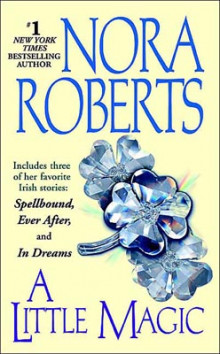 A Little Magic
A Little Magic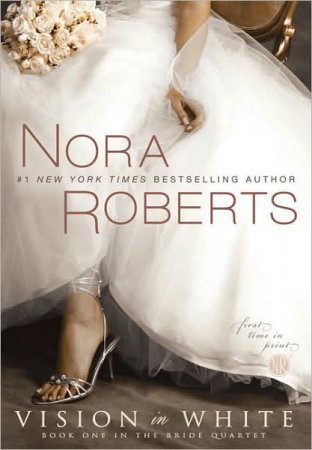 Vision in White
Vision in White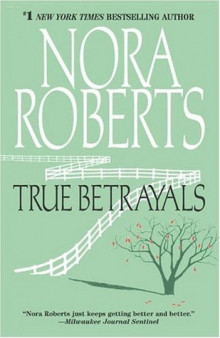 True Betrayals
True Betrayals The Next Always
The Next Always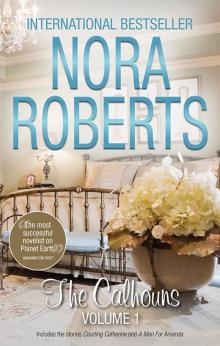 A Man for Amanda
A Man for Amanda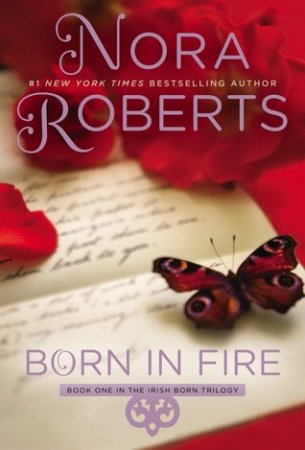 Born in Fire
Born in Fire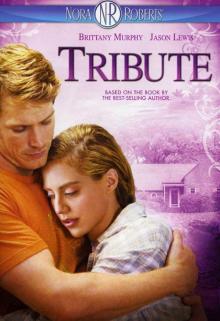 Tribute
Tribute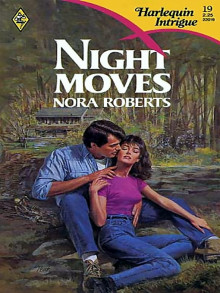 Night Moves
Night Moves Dance Upon the Air
Dance Upon the Air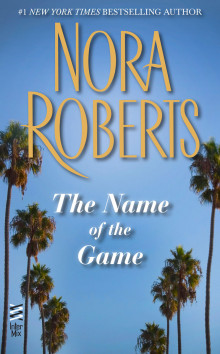 The Name of the Game
The Name of the Game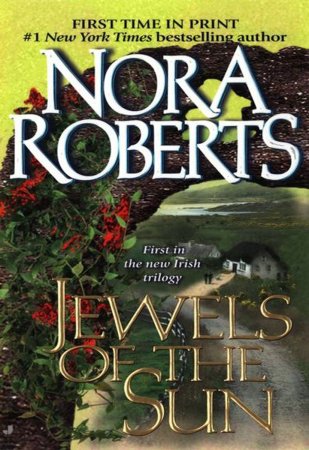 Jewels of the Sun
Jewels of the Sun River's End
River's End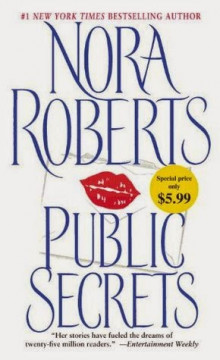 Public Secrets
Public Secrets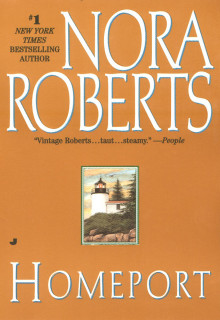 Homeport
Homeport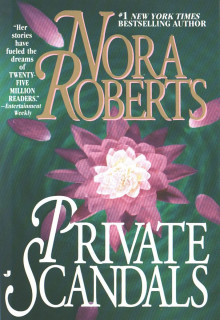 Private Scandals
Private Scandals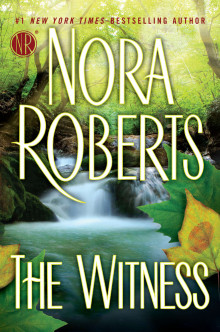 The Witness
The Witness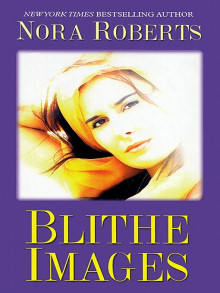 Blithe Images
Blithe Images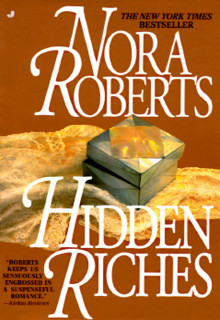 Hidden Riches
Hidden Riches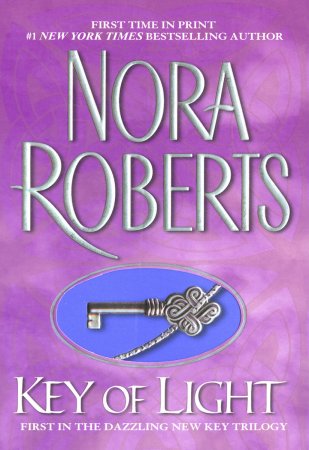 Key of Light
Key of Light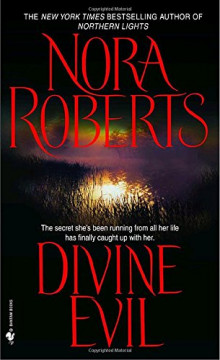 Divine Evil
Divine Evil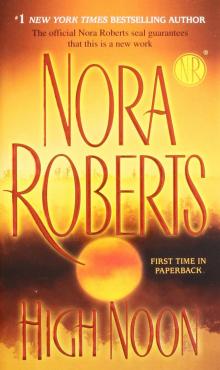 High Noon
High Noon Blue Dahlia
Blue Dahlia Sea Swept
Sea Swept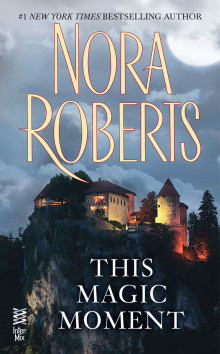 This Magic Moment
This Magic Moment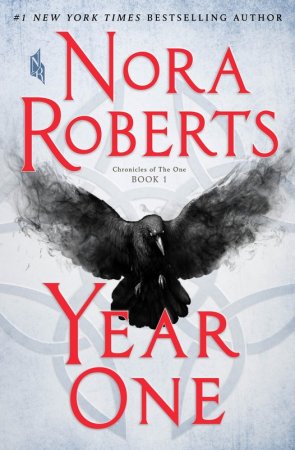 Year One
Year One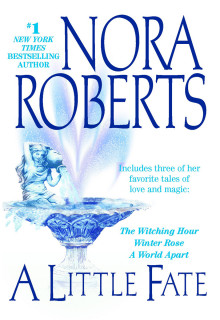 A Little Fate
A Little Fate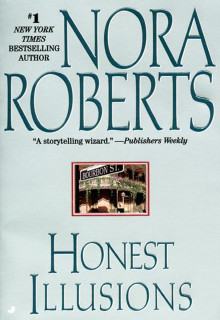 Honest Illusions
Honest Illusions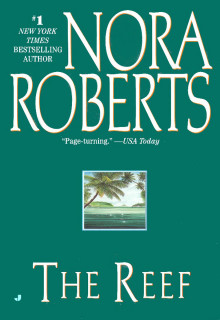 The Reef
The Reef Shelter in Place
Shelter in Place The Hollow
The Hollow Holding the Dream
Holding the Dream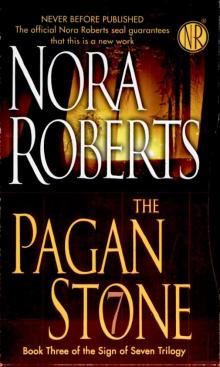 The Pagan Stone
The Pagan Stone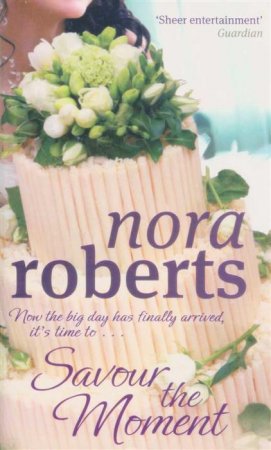 Savour the Moment
Savour the Moment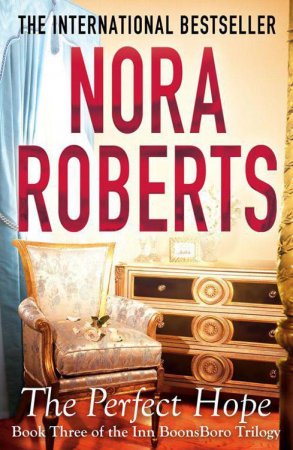 The Perfect Hope
The Perfect Hope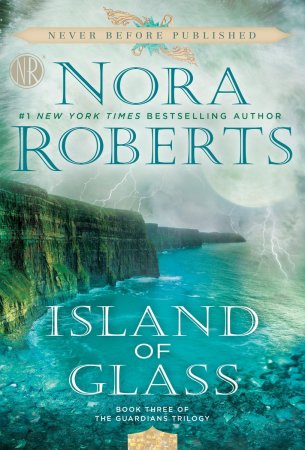 Island of Glass
Island of Glass Happy Ever After
Happy Ever After Bed of Roses
Bed of Roses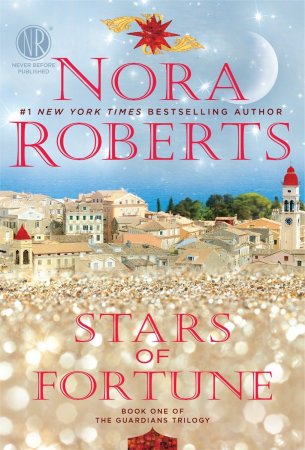 Stars of Fortune
Stars of Fortune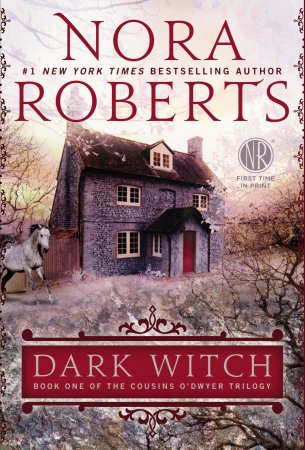 Dark Witch
Dark Witch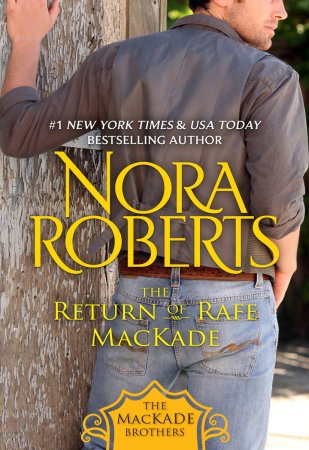 The Return of Rafe MacKade
The Return of Rafe MacKade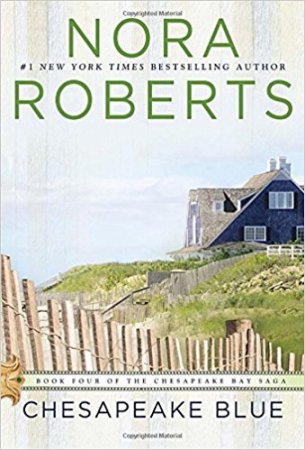 Chesapeake Blue
Chesapeake Blue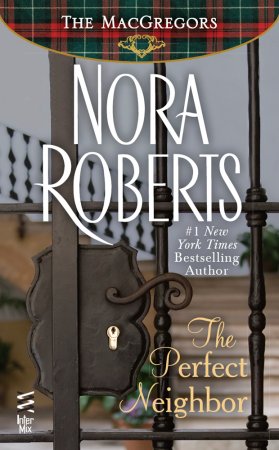 The Perfect Neighbor
The Perfect Neighbor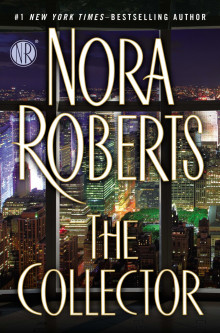 The Collector
The Collector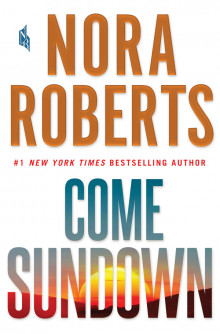 Come Sundown
Come Sundown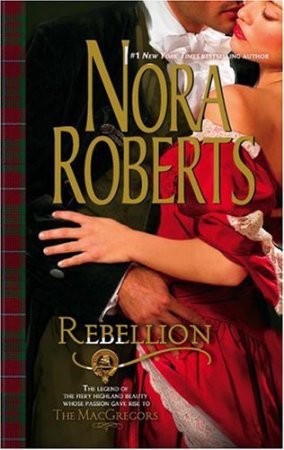 Rebellion
Rebellion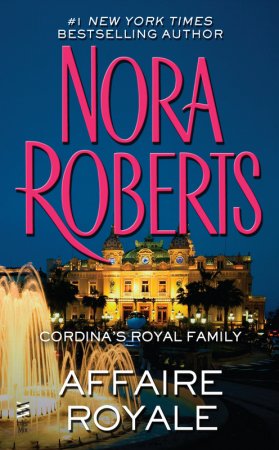 Affaire Royale
Affaire Royale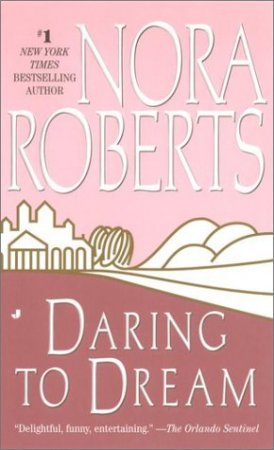 Daring to Dream
Daring to Dream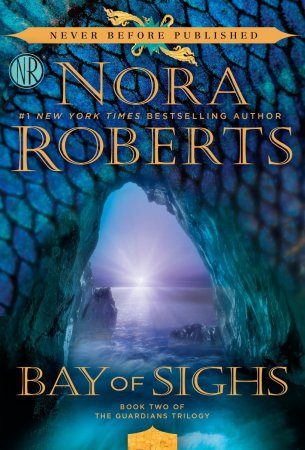 Bay of Sighs
Bay of Sighs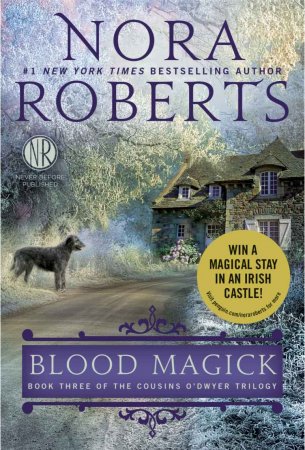 Blood Magick
Blood Magick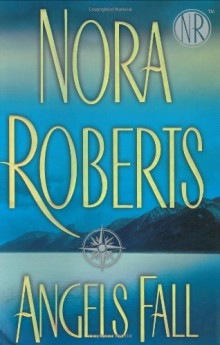 Angels Fall
Angels Fall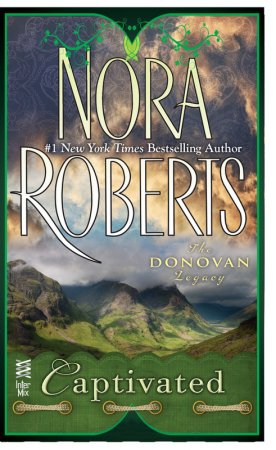 Captivated
Captivated The Last Boyfriend
The Last Boyfriend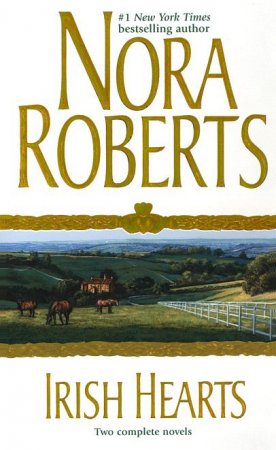 Irish Thoroughbred
Irish Thoroughbred Inner Harbor
Inner Harbor The Right Path
The Right Path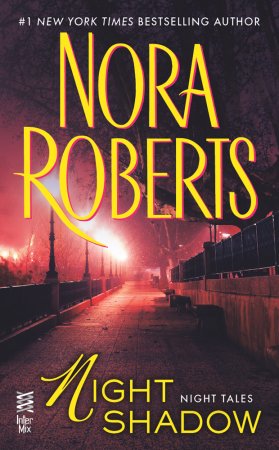 Night Shadow
Night Shadow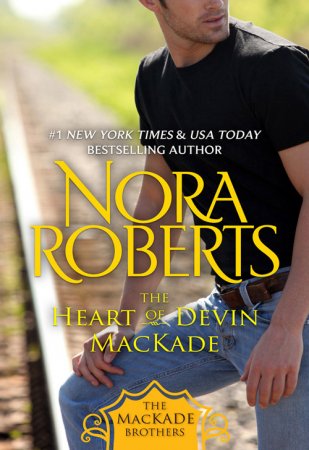 The Heart of Devin MacKade
The Heart of Devin MacKade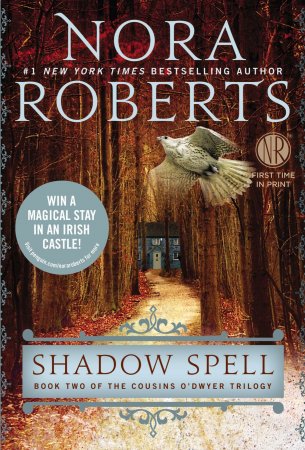 Shadow Spell
Shadow Spell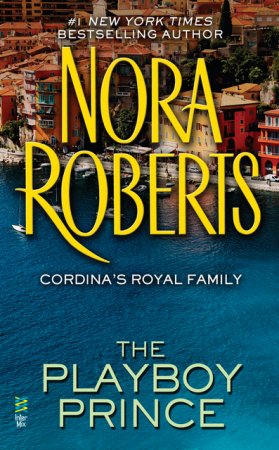 The Playboy Prince
The Playboy Prince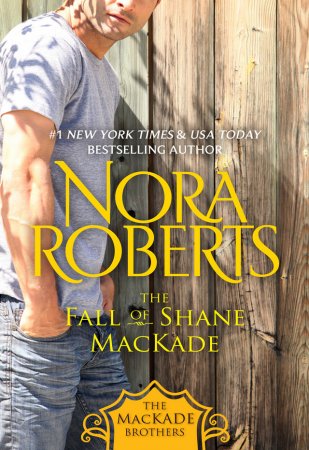 The Fall of Shane MacKade
The Fall of Shane MacKade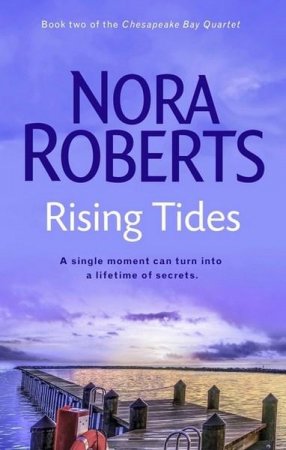 Rising Tides
Rising Tides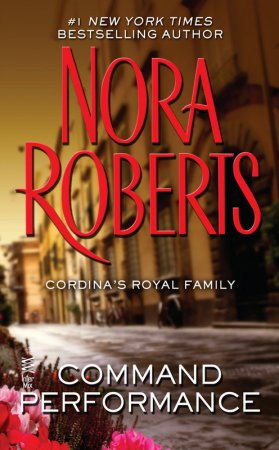 Command Performance
Command Performance Hidden Star
Hidden Star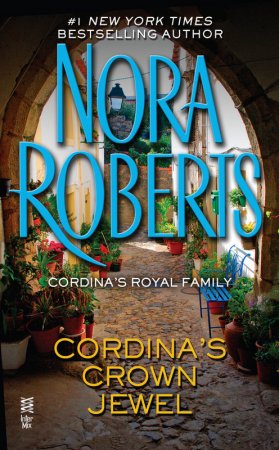 Cordina's Crown Jewel
Cordina's Crown Jewel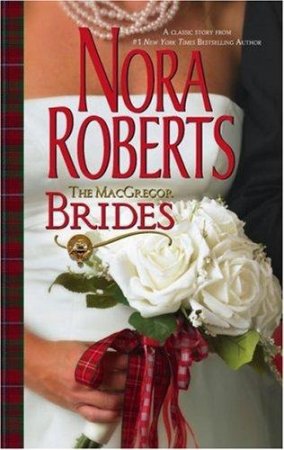 The MacGregor Brides
The MacGregor Brides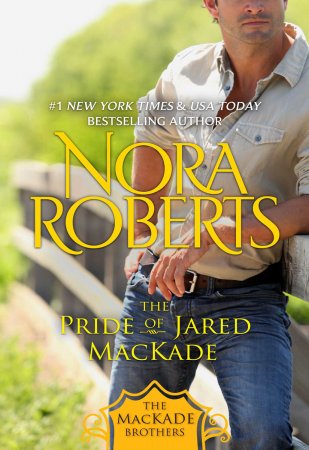 The Pride of Jared MacKade
The Pride of Jared MacKade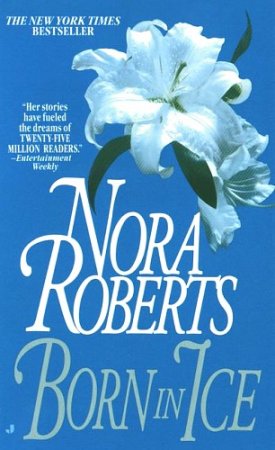 Born in Ice
Born in Ice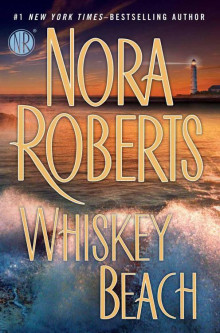 Whiskey Beach
Whiskey Beach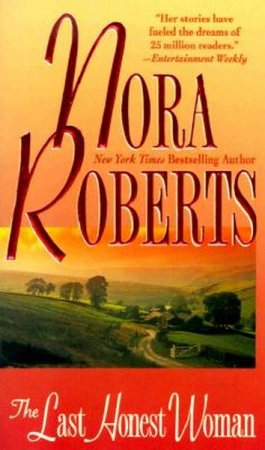 The Last Honest Woman
The Last Honest Woman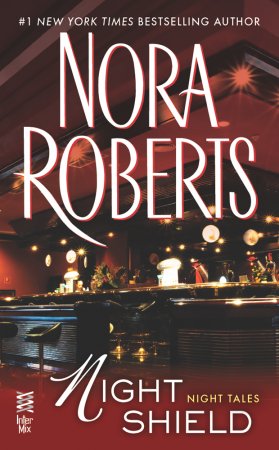 Night Shield
Night Shield Born in Shame
Born in Shame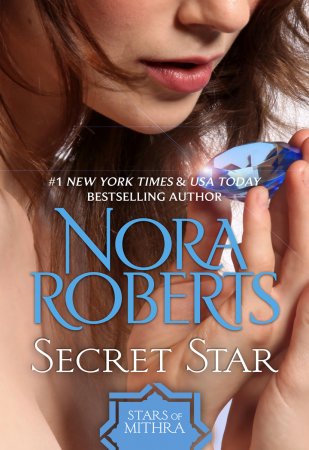 Secret Star
Secret Star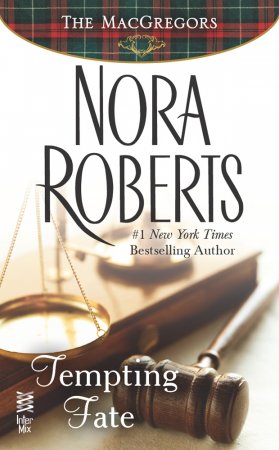 Tempting Fate
Tempting Fate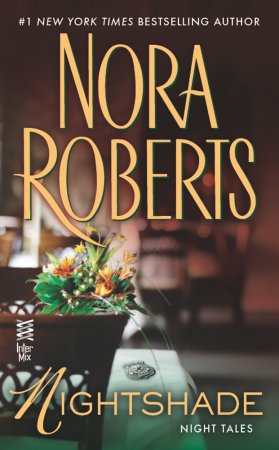 Nightshade
Nightshade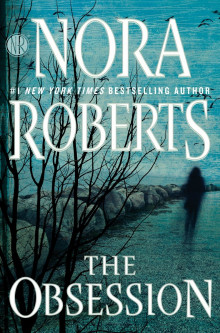 The Obsession
The Obsession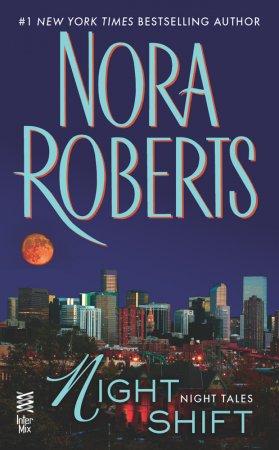 Night Shift
Night Shift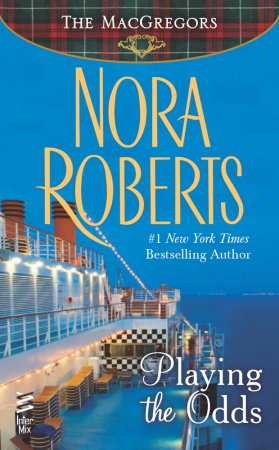 Playing The Odds
Playing The Odds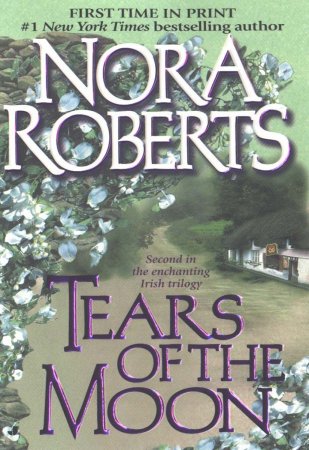 Tears of the Moon
Tears of the Moon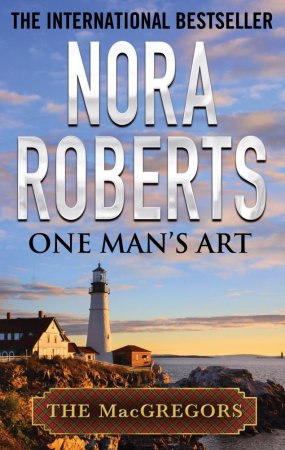 One Man's Art
One Man's Art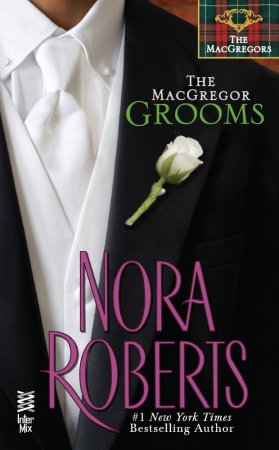 The MacGregor Groom
The MacGregor Groom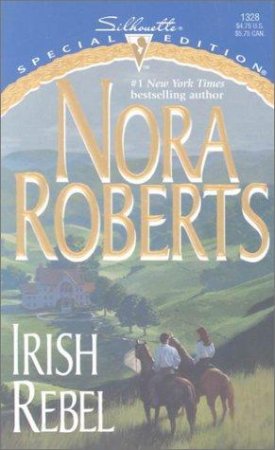 Irish Rebel
Irish Rebel Morrigan's Cross
Morrigan's Cross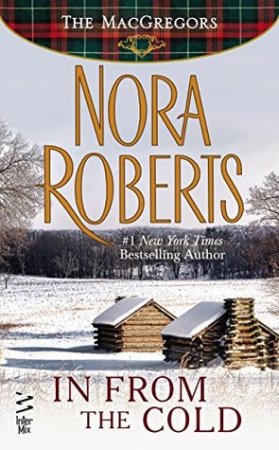 In From The Cold
In From The Cold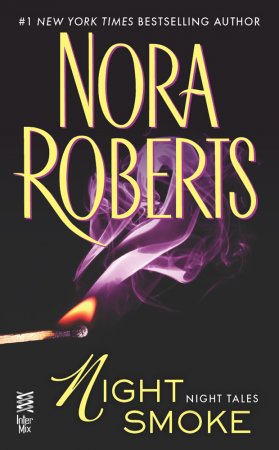 Night Smoke
Night Smoke Finding the Dream
Finding the Dream Red Lily
Red Lily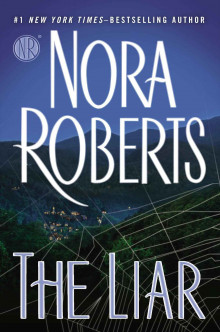 The Liar
The Liar Montana Sky
Montana Sky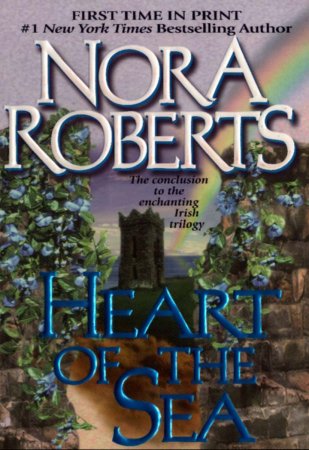 Heart of the Sea
Heart of the Sea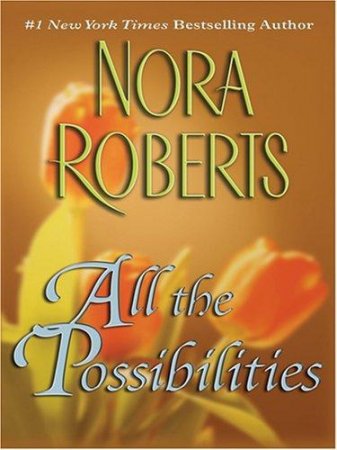 All The Possibilities
All The Possibilities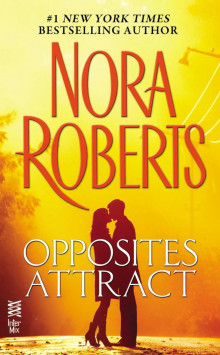 Opposites Attract
Opposites Attract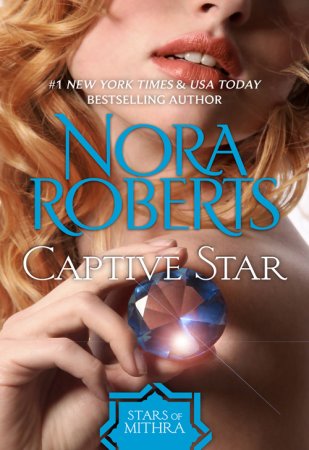 Captive Star
Captive Star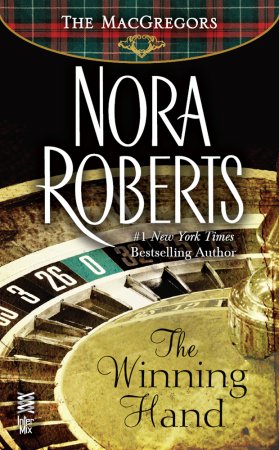 The Winning Hand
The Winning Hand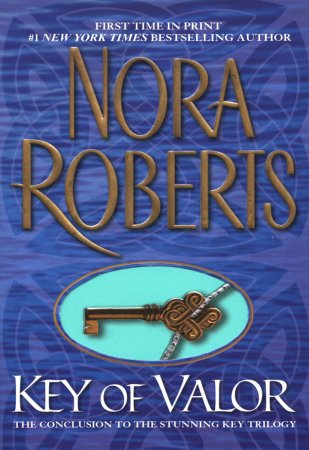 Key of Valor
Key of Valor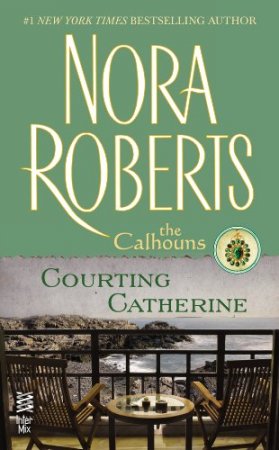 Courting Catherine
Courting Catherine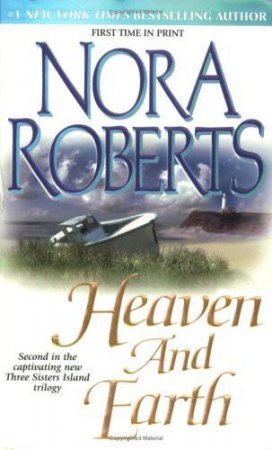 Heaven and Earth
Heaven and Earth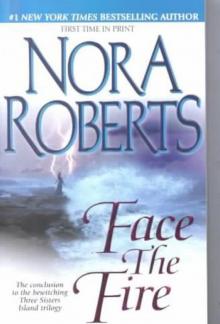 Face the Fire
Face the Fire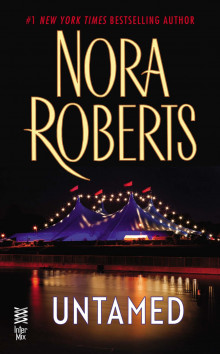 Untamed
Untamed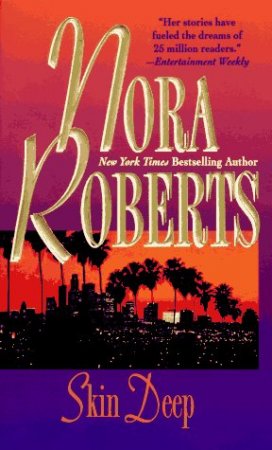 Skin Deep
Skin Deep Enchanted
Enchanted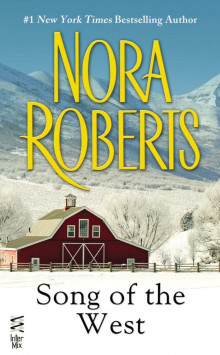 Song of the West
Song of the West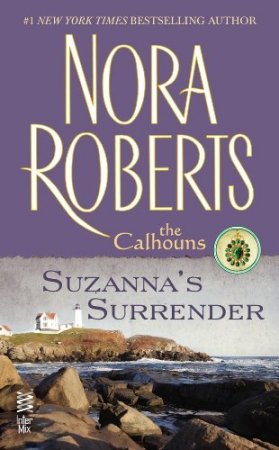 Suzanna's Surrender
Suzanna's Surrender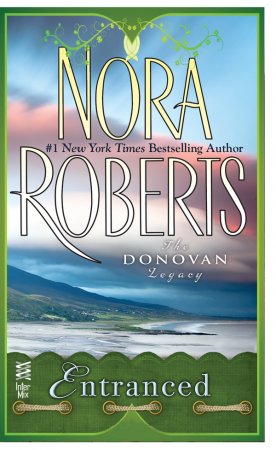 Entranced
Entranced Dance of the Gods
Dance of the Gods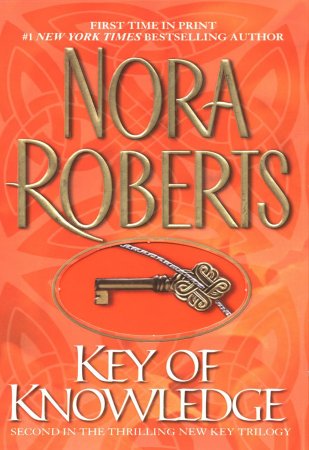 Key of Knowledge
Key of Knowledge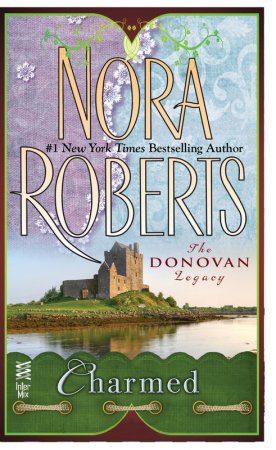 Charmed
Charmed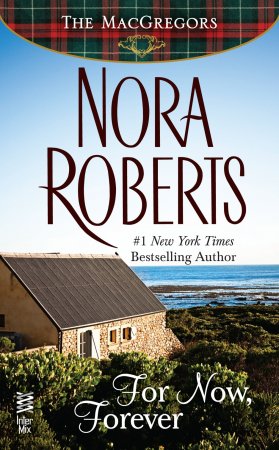 For Now, Forever
For Now, Forever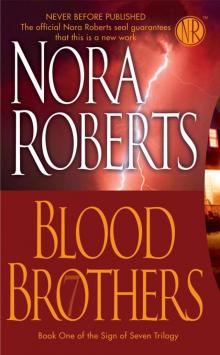 Blood Brothers
Blood Brothers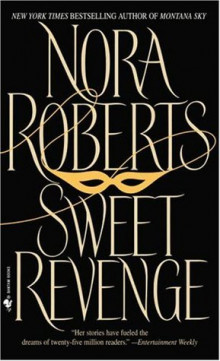 Sweet Revenge
Sweet Revenge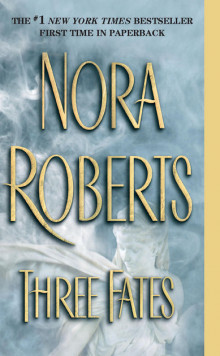 Three Fates
Three Fates Mind Over Matter
Mind Over Matter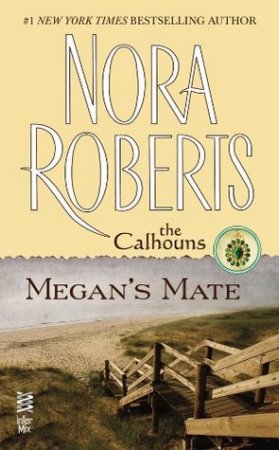 Megan's Mate
Megan's Mate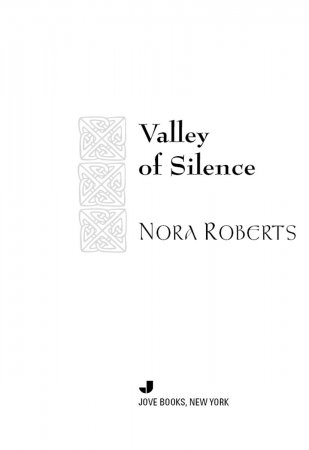 Valley of Silence
Valley of Silence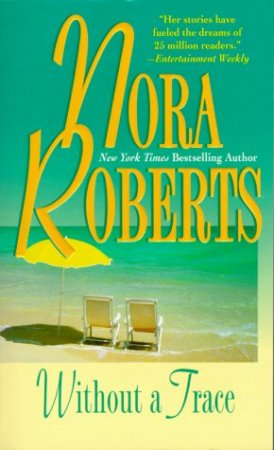 Without A Trace
Without A Trace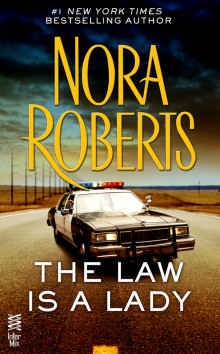 The Law is a Lady
The Law is a Lady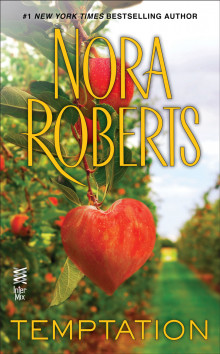 Temptation
Temptation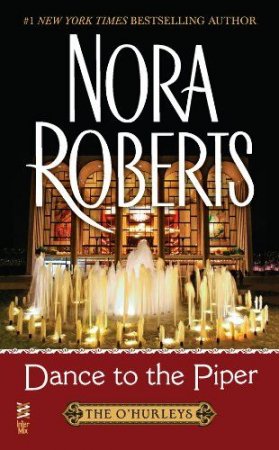 Dance to the Piper
Dance to the Piper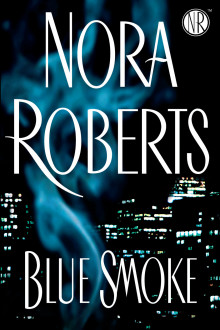 Blue Smoke
Blue Smoke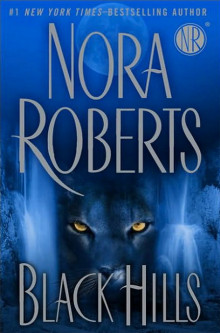 Black Hills
Black Hills The Heart's Victory
The Heart's Victory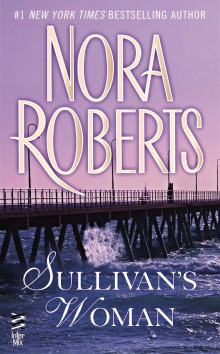 Sullivan's Woman
Sullivan's Woman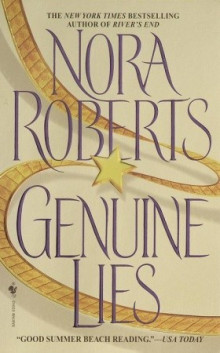 Genuine Lies
Genuine Lies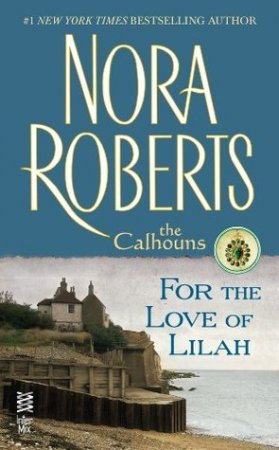 For the Love of Lilah
For the Love of Lilah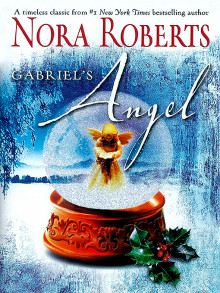 Gabriel's Angel
Gabriel's Angel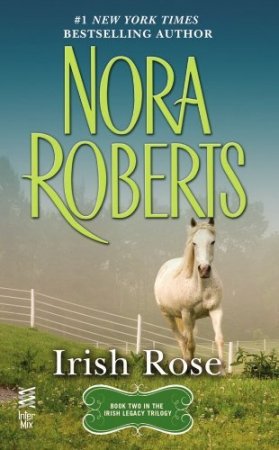 Irish Rose
Irish Rose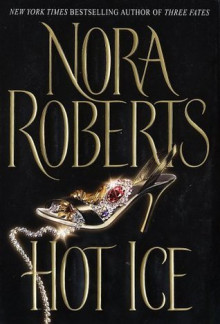 Hot Ice
Hot Ice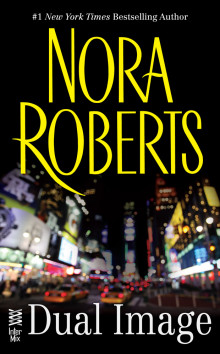 Dual Image
Dual Image Lawless
Lawless Catch My Heart
Catch My Heart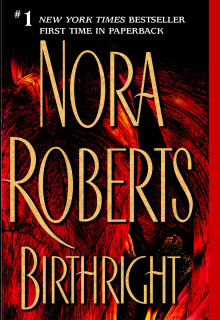 Birthright
Birthright First Impressions
First Impressions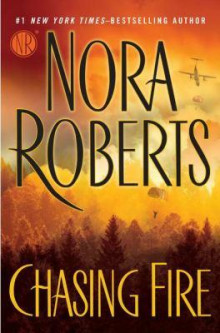 Chasing Fire
Chasing Fire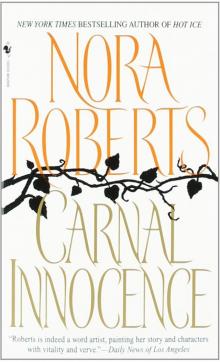 Carnal Innocence
Carnal Innocence Best Laid Plans
Best Laid Plans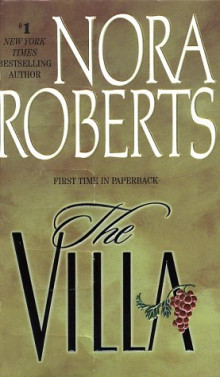 The Villa
The Villa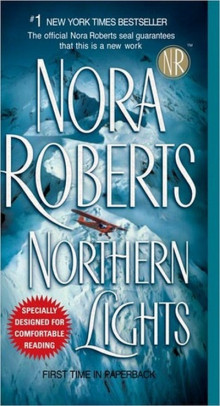 Northern Lights
Northern Lights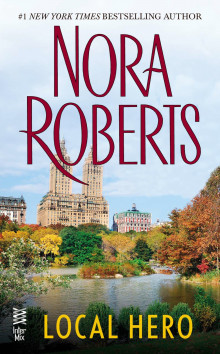 Local Hero
Local Hero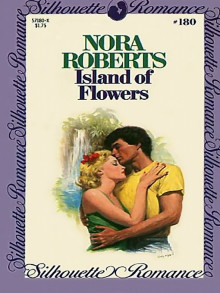 Island of Flowers
Island of Flowers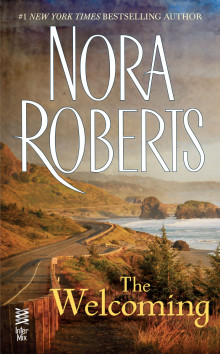 The Welcoming
The Welcoming All I Want for Christmas
All I Want for Christmas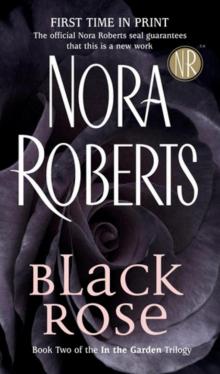 Black Rose
Black Rose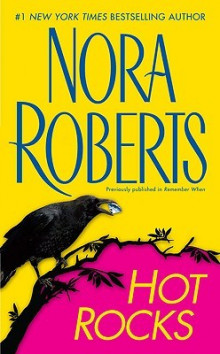 Hot Rocks
Hot Rocks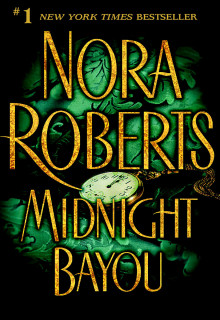 Midnight Bayou
Midnight Bayou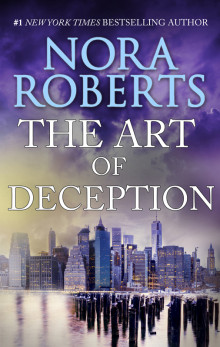 The Art of Deception
The Art of Deception From This Day
From This Day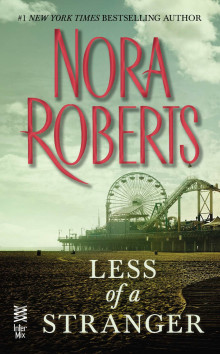 Less of a Stranger
Less of a Stranger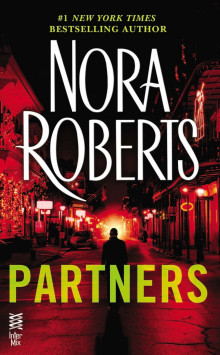 Partners
Partners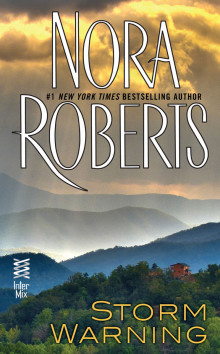 Storm Warning
Storm Warning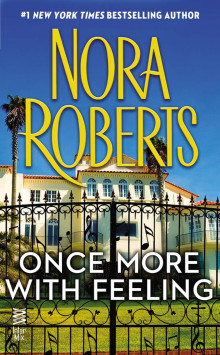 Once More With Feeling
Once More With Feeling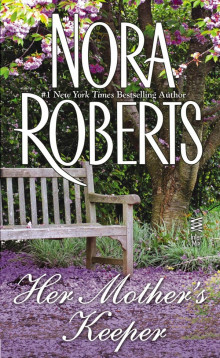 Her Mother's Keeper
Her Mother's Keeper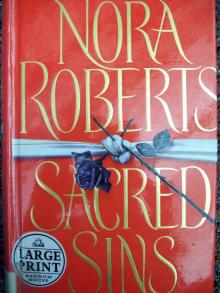 Sacred Sins
Sacred Sins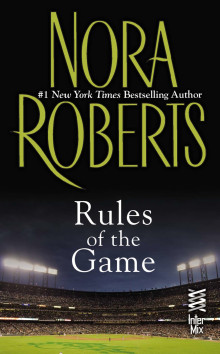 Rules of the Game
Rules of the Game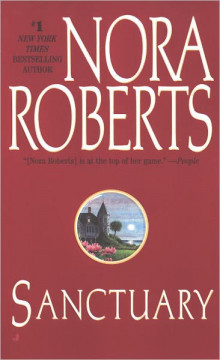 Sanctuary
Sanctuary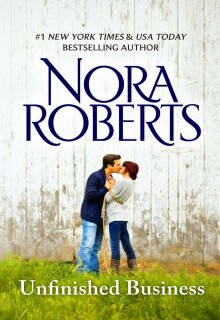 Unfinished Business
Unfinished Business Cordina's Royal Family Collection
Cordina's Royal Family Collection Dangerous Embrace
Dangerous Embrace One Summer
One Summer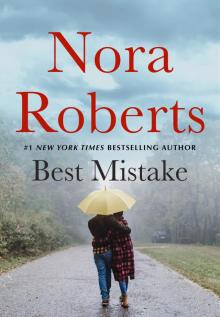 The Best Mistake
The Best Mistake Boundary Lines
Boundary Lines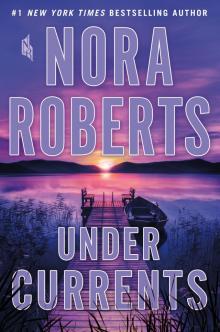 Under Currents
Under Currents The Stanislaski Series Collection, Volume 1
The Stanislaski Series Collection, Volume 1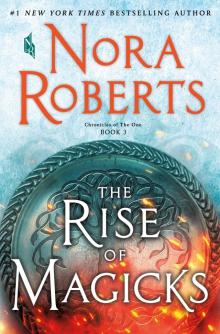 The Rise of Magicks
The Rise of Magicks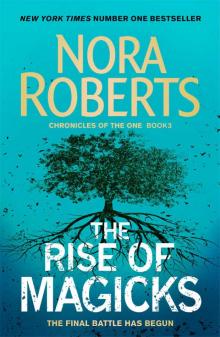 The Rise of Magicks (Chronicles of The One)
The Rise of Magicks (Chronicles of The One) The Awakening: The Dragon Heart Legacy Book 1
The Awakening: The Dragon Heart Legacy Book 1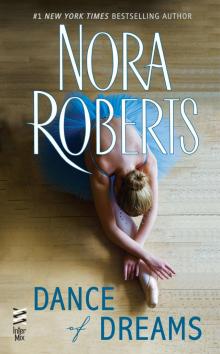 Dance of Dreams
Dance of Dreams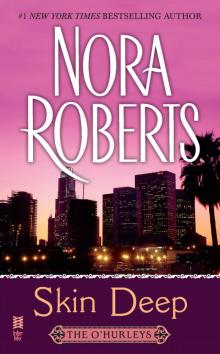 Skin Deep: The O'Hurleys
Skin Deep: The O'Hurleys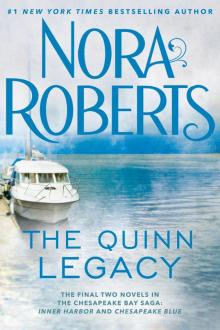 The Quinn Legacy: Inner Harbor ; Chesapeake Blue
The Quinn Legacy: Inner Harbor ; Chesapeake Blue![[Chronicles of the One 03.0] The Rise of Magicks Read online](http://i1.bookreadfree.com/11/chronicles_of_the_one_03_0_the_rise_of_magicks_preview.jpg) [Chronicles of the One 03.0] The Rise of Magicks
[Chronicles of the One 03.0] The Rise of Magicks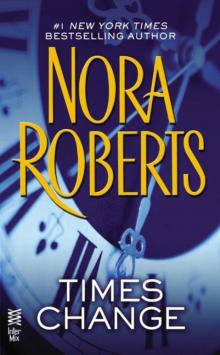 Times Change
Times Change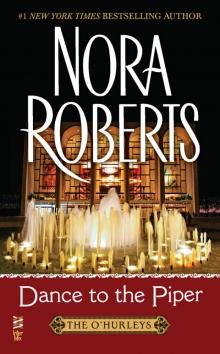 Dance to the Piper: The O'Hurleys
Dance to the Piper: The O'Hurleys Christmas In the Snow: Taming Natasha / Considering Kate
Christmas In the Snow: Taming Natasha / Considering Kate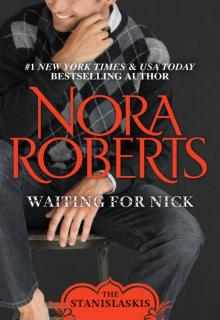 Waiting for Nick
Waiting for Nick Summer Desserts
Summer Desserts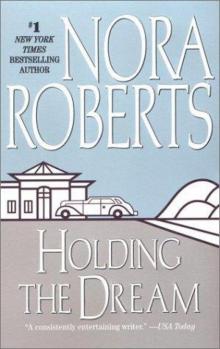 Dream 2 - Holding the Dream
Dream 2 - Holding the Dream The Novels of Nora Roberts, Volume 2
The Novels of Nora Roberts, Volume 2 In the Garden Trilogy
In the Garden Trilogy Eight Classic Nora Roberts Romantic Suspense Novels
Eight Classic Nora Roberts Romantic Suspense Novels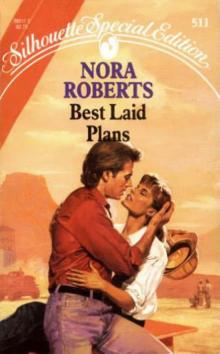 Best Laid Plans jh-2
Best Laid Plans jh-2 From the Heart
From the Heart Holiday Wishes
Holiday Wishes Dream 1 - Daring to Dream
Dream 1 - Daring to Dream Second Nature
Second Nature Summer Pleasures
Summer Pleasures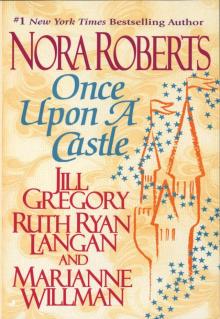 Once Upon a Castle
Once Upon a Castle Stars of Mithra Box Set: Captive StarHidden StarSecret Star
Stars of Mithra Box Set: Captive StarHidden StarSecret Star Impulse
Impulse The Irish Trilogy by Nora Roberts
The Irish Trilogy by Nora Roberts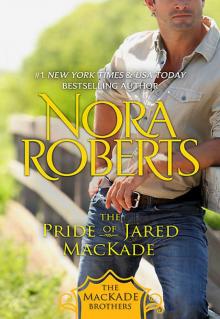 The Pride Of Jared Mackade tmb-2
The Pride Of Jared Mackade tmb-2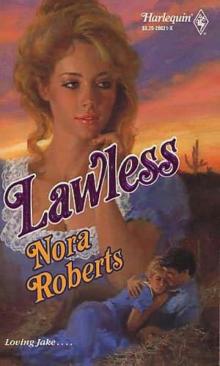 Lawless jh-3
Lawless jh-3 Taming Natasha
Taming Natasha Endless Summer
Endless Summer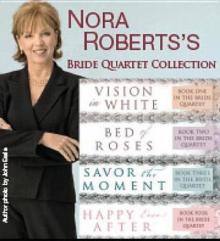 Bride Quartet Collection
Bride Quartet Collection Happy Ever After tbq-4
Happy Ever After tbq-4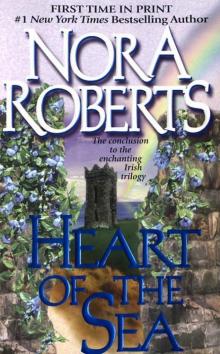 Heart Of The Sea goa-3
Heart Of The Sea goa-3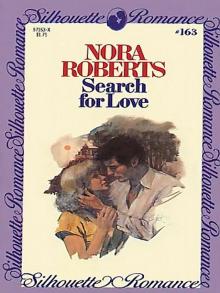 Search for Love
Search for Love Once upon a Dream
Once upon a Dream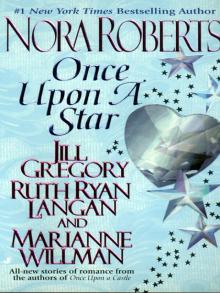 Once Upon a Star
Once Upon a Star Dream Trilogy
Dream Trilogy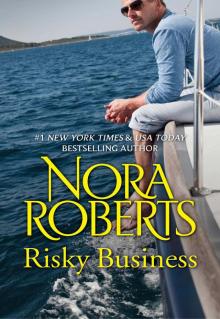 Risky Business
Risky Business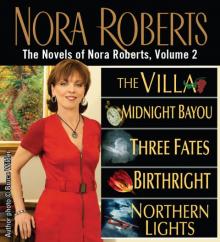 The Novels of Nora Roberts, Volume 3
The Novels of Nora Roberts, Volume 3 Dream 3 - Finding the Dream
Dream 3 - Finding the Dream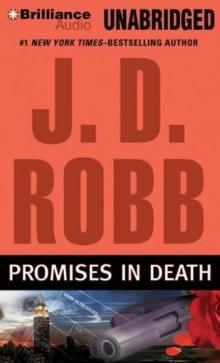 Promises in Death id-34
Promises in Death id-34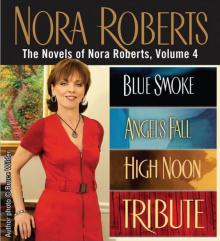 The Novels of Nora Roberts, Volume 4
The Novels of Nora Roberts, Volume 4 The Perfect Hope ib-3
The Perfect Hope ib-3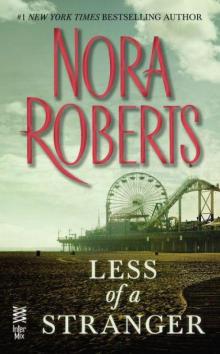 Less than a Stranger
Less than a Stranger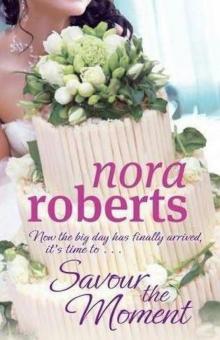 Savour the Moment: Now the Big Day Has Finally Arrived, It's Time To...
Savour the Moment: Now the Big Day Has Finally Arrived, It's Time To...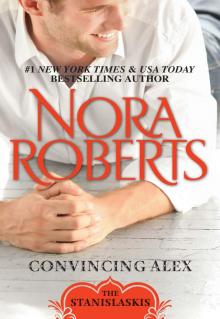 Convincing Alex
Convincing Alex Bed of Roses tbq-2
Bed of Roses tbq-2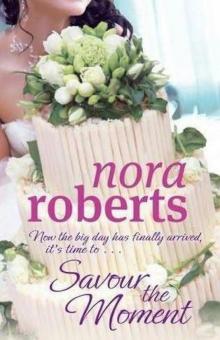 Savour the Moment tbq-3
Savour the Moment tbq-3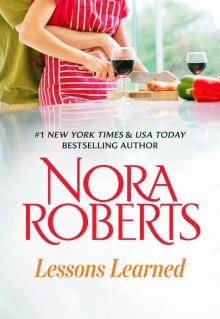 Lessons Learned
Lessons Learned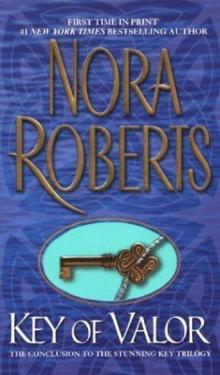 Key Of Valor k-3
Key Of Valor k-3 Red lily gt-3
Red lily gt-3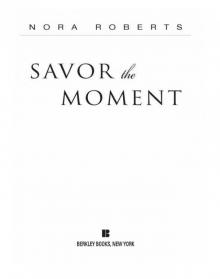 Savor the Moment
Savor the Moment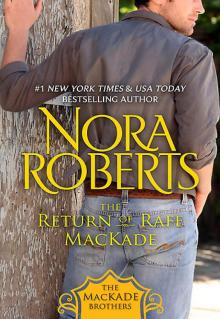 The Return Of Rafe Mackade tmb-1
The Return Of Rafe Mackade tmb-1 For The Love Of Lilah tcw-3
For The Love Of Lilah tcw-3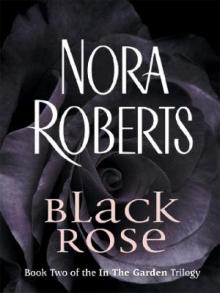 Black Rose gt-2
Black Rose gt-2 Novels: The Law is a Lady
Novels: The Law is a Lady Chesapeake Bay Saga 1-4
Chesapeake Bay Saga 1-4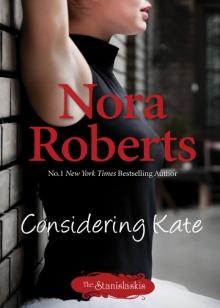 Considering Kate
Considering Kate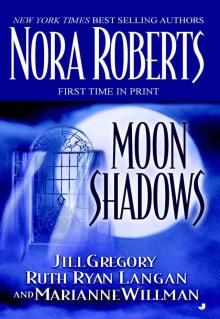 Moon Shadows
Moon Shadows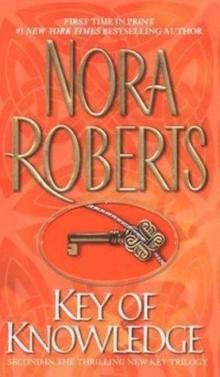 Key of Knowledge k-2
Key of Knowledge k-2 The Sign of Seven Trilogy
The Sign of Seven Trilogy Once Upon a Kiss
Once Upon a Kiss The Novels of Nora Roberts, Volume 5
The Novels of Nora Roberts, Volume 5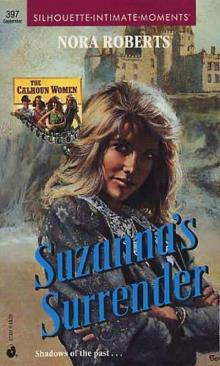 Suzanna's Surrender tcw-4
Suzanna's Surrender tcw-4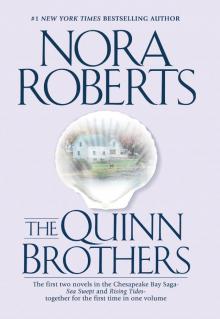 The Quinn Brothers
The Quinn Brothers Falling for Rachel
Falling for Rachel Brazen Virtue
Brazen Virtue Time Was
Time Was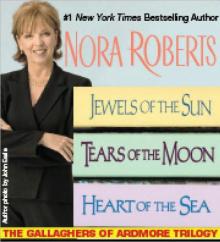 The Gallaghers of Ardmore Trilogy
The Gallaghers of Ardmore Trilogy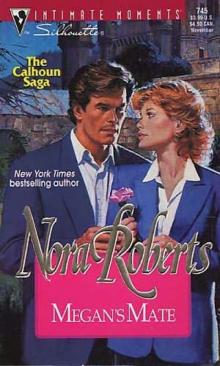 Megan's Mate tcw-5
Megan's Mate tcw-5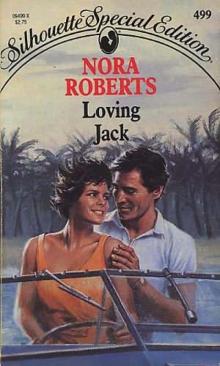 Loving Jack jh-1
Loving Jack jh-1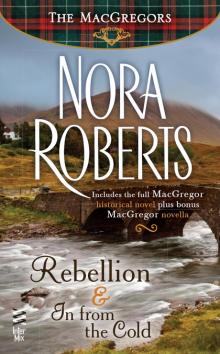 Rebellion & In From The Cold
Rebellion & In From The Cold Blue Dahlia gt-1
Blue Dahlia gt-1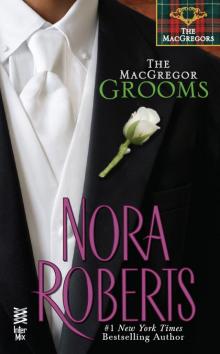 The MacGregor Grooms
The MacGregor Grooms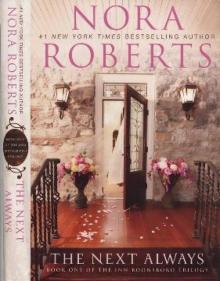 The Next Always tibt-1
The Next Always tibt-1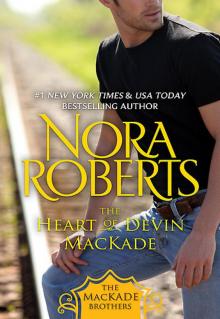 The Heart Of Devin Mackade tmb-3
The Heart Of Devin Mackade tmb-3 The Novels of Nora Roberts Volume 1
The Novels of Nora Roberts Volume 1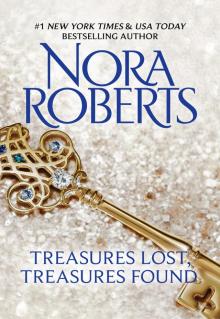 Treasures Lost, Treasures Found
Treasures Lost, Treasures Found Nora Roberts's Circle Trilogy
Nora Roberts's Circle Trilogy The Key Trilogy
The Key Trilogy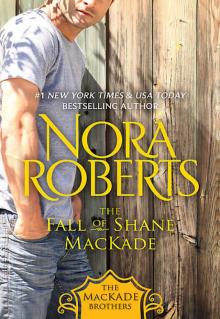 The Fall Of Shane Mackade tmb-4
The Fall Of Shane Mackade tmb-4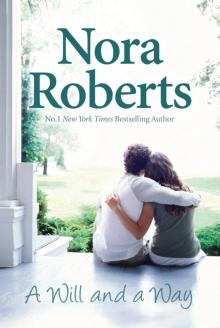 A Will And A Way
A Will And A Way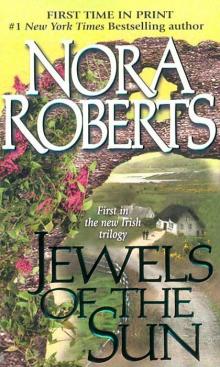 Jewels of the Sun goa-1
Jewels of the Sun goa-1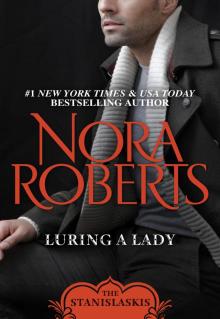 Luring a Lady
Luring a Lady